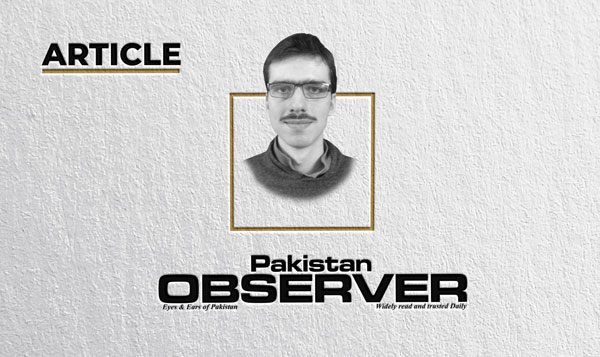The scale of global food crisis and impact on Pakistan
PAKISTAN faces a food crisis with no definite end in sight. Not only have the floods that swamped a third of the country caused monumental agricultural losses, but the equally unprecedented heatwaves of the preceding several months also caused major crop failure, entailing a prolonged period of depressed food production.
The fact that many areas will remain flooded for months adds to this problem. Due to climate change, weather disasters are occurring at such high frequency that there is no time for society to recover in the interval in-between.
For food production, which largely involves long-term operations, this is a dire situation.
Of course, the world is very likely just in a period of excessive extreme weather due to the La Nina (a climate phase in which the eastern Pacific becomes colder and the west warmer, which disrupts global air circulation patterns) which has been in place since 2020.
This is the third time since 1950 that a La Nina has lasted three years. When the current La Nina ends next year (unless it becomes the first to last four years and there is no reason to believe it will), severe weather will probably stop being as common as it was in the last three years, although the long-term trajectory of climate change still clouds our future.
A country facing a situation such as ours usually turns to the international community for food aid.
Unfortunately, Pakistan’s monsoon deluge came at a time when the entire world is facing catastrophe.
The COVID-19 pandemic used to be the biggest problem (and still remains quite serious). Now it is the fallout from Russia’s invasion of Ukraine. And all the while, extreme weather has been unrelenting.
One could say that we are right now in an acute, multi-dimensional global crisis consisting of three main components, the pandemic, the La Nina, and the war in Ukraine.
All three events are seriously impacting food security.
It means that not only is Pakistan suffering food shortages within its borders, it is far less likely than normal to receive food from abroad, whether through purchase or through donation.
The way these three individual crises play out is quite complex. The economic and logistical repercussions of the pandemic are severe, and China, Pakistan’s most dependable partner in times of trouble, is the one country still in crisis from the virus.
And global food production is in serious trouble from severe weather. There is a pattern to this.
The countries that produce and export most of the world’s food are located in temperate latitudes, including the United States, Canada, China, Australia and Argentina.
That means they are in proximity to the Jetstreams, powerful currents of air that steer weather around the planet.
The Jetstreams, because of La Nina, have lately been faltering a lot, resulting in weather systems moving north and south and then staying in one place.
This has brought disaster to most of the world’s breadbaskets. Almost constantly throughout the last two years, unprecedented weather events have ravaged China, Europe, Australia, USA, Canada, and South America’s fertile Pampas.
In fact, by the time 2022 began, only two food-growing hubs were spared the worst effects of disastrous weather, Russia and Ukraine.
Then these two nations became part of the food crisis in an entirely different way. Ukraine was invaded and Russia was placed under international sanctions, a situation lasting to this day.
Here is how the war and weather may be related. War is a serious matter and a nation would only embark on it in order to handle a serious threat or take advantage of a good opportunity.
Since Ukraine ended 2021 with a bumper crop, and since food production nearly everywhere else was faltering, Russia taking control of territory in Ukraine, or at least control of the Black Sea through which both countries exported most of their food, would allow Kremlin to attain dominance in the global food market.
This would enhance Russia’s influence in the developing world in which food imports are a vital need, especially at time like this.
COVID-19 may also have played a part in Putin’s decision to invade, because of how the pandemic damaged the global economic system, making trade more difficult.
A severe energy crisis from 2021 may also have given Putin confidence Russia won’t suffer severe retaliation from Europe due to strategic value of its oil and gas exports.
All three crises, therefore, are linked. Humanity’s impact on the climate and on the biosphere makes destructive La Nina, events and pandemics respectively more likely.
Both started in 2020 and set the stage for a war two years later that is the most impactful war since World War 2. It will be very difficult for Pakistan to weather these circumstances. A sound policy is required.
Our crises seem quite overwhelming, but will have to be managed on our own for the foreseeable future, depending on where coronavirus, La Nina, and Ukraine war are taking the world next.
We better act to ameliorate the situation soon because prolonged under-nutrition stunts the growth of children and carries lasting impacts for the next generation.
This problem receives not nearly as much attention in Pakistan as it should. Nation’s debate is focused on whether elections will be held early or late.
We need to take notice of our dire food situation and must know what is truly at stake. Necessity is the mother of invention.
Comprehending scale of what we face will motivate us to find solutions but, if we pay no attention to problem confronting us, it will engulf us.
—The writer is Director at Pakistan’s People Led Disaster Management.










